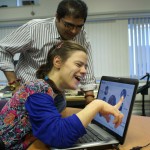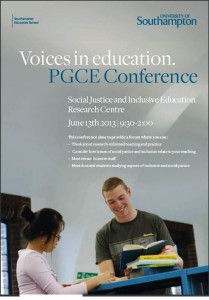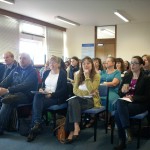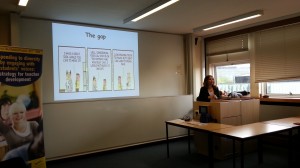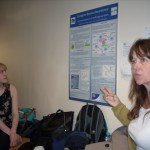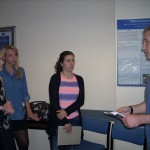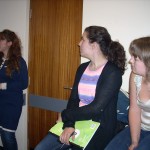On 28th November the University of Southampton hosted the third in a series of four seminars funded by ESRC working on pushing the boundaries of participatory research with people with learning disabilities. This particular seminar, convened by Melanie Nind of SJIE, focused on inclusive approaches for people with high support needs. The speakers included Nicola Grove from Open Storytellers, Andy Minnion and Ajay Choksi from the Rix Centre, Katherine Runswick-Cole from Manchester Metropolitan University, and Debby Watson, Hilra Vinha and Sue Ledger (with Sue Thorp and Lindy Rowbotham) talking about their doctoral research. They were able to showcase a range of approaches to involving people with learning disabilities in research for whom the barriers are more complex than those ordinarily faced because of sensory or intellectual impairment, medical needs, or communication difficulties.
These approaches involved using technology, using visual methods, acting as a researcher in residence, working with real objects and with real sensitivity, and going with people with learning disabilities into places of importance for them. In many ways the approaches discussed are approaches used by other qualitative researchers, and the issues and challenges faced had much in common too. It seemed that perhaps most distinctive about involving people in research whose needs are greater or more complex is the determination of the researchers to do this, their willingness to think creatively around the challenges, and the investment of time to build understandings on all sides slowly and carefully, layer upon layer. This was a great event contributing to the Centre’s focus on inclusive research as well as inclusive education.
